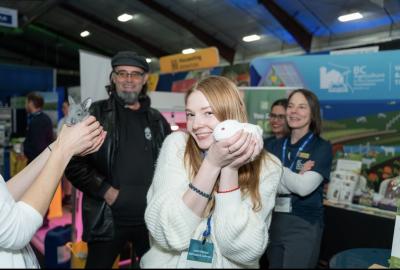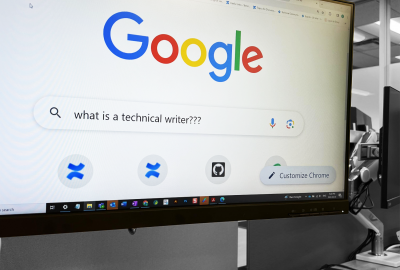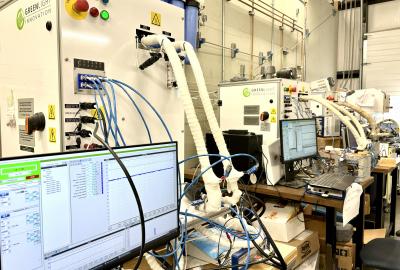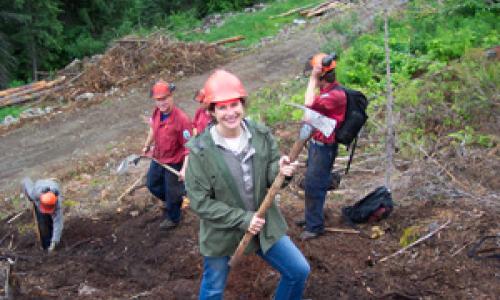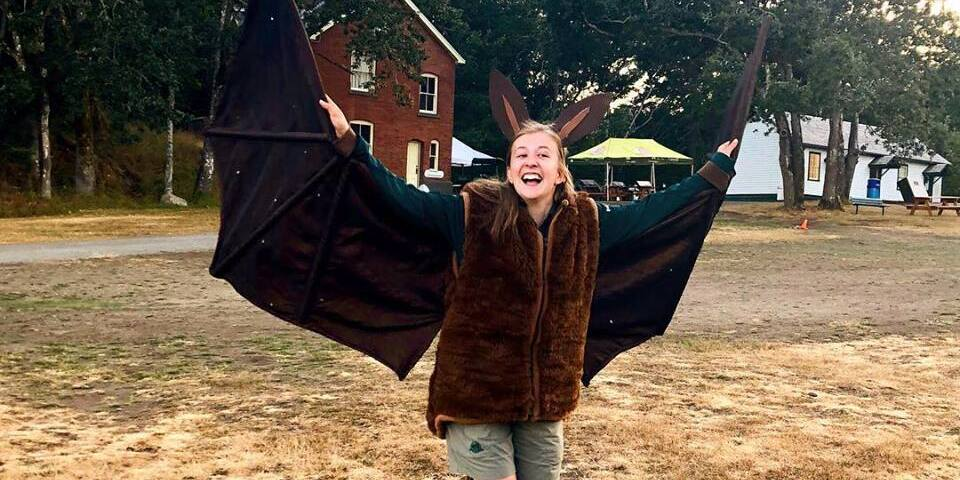
As I finish up my final co-op term of my degree, it is interesting to reflect back and think about how much I have learned about education while being away from the classroom! I had never considered being a teacher before I did co-op and now, here I am working to fulfill my final three PDP requirements! My most recent experience with Parks Canada has kept this spark for teaching alive and taught me about how to be an effective educator.
Background
This summer I was fortunate enough to work for Parks Canada as a member of the Vancouver Learn-to-Camp (LTC) team. Parks Canada is a federal government agency that aims to protect, promote, preserve and manage our national parks, historic sites and marine conservation areas. As for LTC, this team is focused on educating the public about safe camping practices in order to promote a more active lifestyle and trips to Parks Canada locations. To reach these goals, the LTC team runs free workshops, hosts pop-up outreach events and offers several overnight events where participants experience a guided overnight camping trip! In short, my job this summer was to be a camping expert and share my passion and knowledge with others to help them gain the confidence that they needed to go camping on their own. Some highlights from my work experience included introducing children to the culinary art of s’mores, exploring beautiful Parks Canada locations and getting to go camping every few weeks! A tough job, but somebody has to do it…
I was very fortunate this summer to work in a job that allowed me to travel, educate the public and have fun while doing so. It has also allowed me to advance my teaching skills and realize what it takes to be a great educator. I will share what I have learned about teaching from this job below.
1. Turn Experience Into Skills
I have always believed that the best way to get an audience to remember something you taught them is to attach it to a memory that they won’t forget. I had a teacher in high school who was incredible at doing this, so incredible in fact that to this day I remember that helicase is an enzyme used to unzip DNA during DNA replication. I do not remember this fact because I read it in a textbook, I remember it because my friend Ben was forced to run back and forth breaking apart the hands of his classmates while saying “helicase, helicase, helicase”! You are more likely to have an audience remember something if you help them associate the knowledge with a memory. I tried to utilize this skill over the summer by asking audiences to demonstrate tasks themselves, share stories and play games throughout workshops to help them remember information better. For example, we would have groups build their own tent or set up their own camp stove which I found this to be a very successful way of teaching practical skills! I will definitely continue using this tactic as I move into new teaching roles.
2. Share Your Knowledge
Another amazing way to captivate an audience and ensure they remember what they are learning is to speak confidently about what you know. For me this summer, that was my knowledge in topics surrounding environmental science. I was constantly explaining principles such as, leave no trace, wildfire danger, human-wildlife coexistence and more to our new camping audiences. I struggled to feel like an “expert” as I am still working to finish up my degree and I know there is still so much I can learn. I have found, however, that speaking strongly and sharing information with confidence will help win over your audience and ensure that they remember the lessons you are teaching them. People were grateful to understand why respecting the environment was important. When they learned why, they were more likely to follow rules we discussed as they understood the impacts of ignoring them.
3. Use Your Passion to Inspire Others
Finally, I learned that your passion is probably the most important part of captivating and educating an audience. If you have a friendly, positive voice and are eager to respond to questions and help people learn they will be happy to listen! Participants should feel inspired and eager to share what they learned after hearing you present, not afraid of forgetting a step or detail of what you taught them. Using my love for camping I was able to help people see why following all the rules and principles we talked about were so important which definitely helped audiences learn quicker and gain confidence!
In Conclusion…
I loved working in a position that allowed me to combine my knowledge from school with my experiences and passion for camping as I could draw on all three methods discussed above to help educate participants effectively. As I move forward into new positions and a potential career in education I will continue to use my experiences, knowledge and passion developed through Co-op to inspire audiences and help them learn!
Hopefully these tips help anyone else who wants to improve their presentation or teaching skills. Remember, work doesn’t have to feel like work if you are doing what you love!
Beyond the Blog
-
Interested in applying for Co-Op? Check out the SFU Co-op Website
-
Want to learn more about the Faculty of Environmental Science? Head over to their website!





